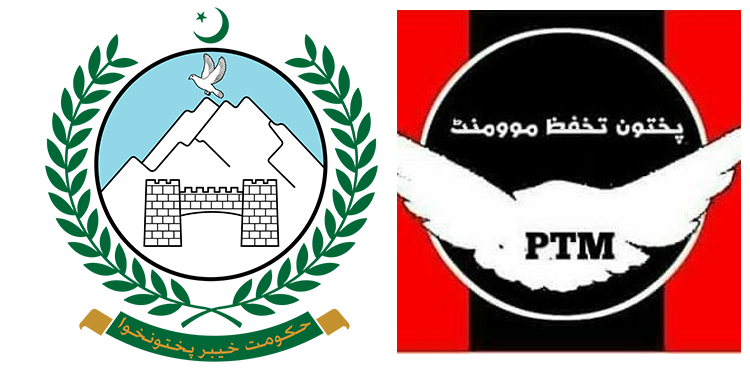
In Pakistan’s harsh, often violent tribal regions, the junction of traditional practices and new concerns has provided fertile ground for social and political groups. Among these, the Pashtun Tahafuz Movement (PTM) has emerged as a key participant, although its involvement and effects have generated serious questions about its objectives and methods. What began as a movement campaigning for Pashtun rights has evolved into a platform that exacerbates ethnic tensions and destabilizes an already unstable area. While PTM’s rhetoric focuses on complaints and rights, its actions point to a more divisive and potentially deadly goal that undermines Pakistan’s national unity and security.
PTM’s Political Exploitation of Local Issues
The killing of Gilaman Wazir on July 12, 2024, exemplifies PTM’s proclivity to politicize personal or local conflicts to advance its larger political narrative. PTM swiftly characterized Wazir’s death, which resulted from an argument during a cricket match, as part of a broader ethnic and political issue, escalating tensions between local populations. PTM leader Manzoor Pashteen took advantage of the opportunity to announce the foundation of the “Pashtun Qaumi Adalat,” a symbolic move that demonstrates PTM’s policy of using local crises to further its divisive agenda.
This instance exemplifies PTM’s larger strategy of using individual occurrences to promote its narrative of ethnic grievance and state victimization. What could have been a personal conflict became a political cause, with ramifications well beyond the local community. This method risks inflaming pre-existing rivalries and weakening peace in an area plagued by violence and instability.
Pakistan’s Commitment to Uplifting Tribal Areas
Since the merger of the Federally Administered Tribal Areas (FATA) and Khyber Pakhtunkhwa (KP) in 2018, Pakistan has made significant efforts to improve these underserved regions. The government invests billions of Pakistani rupees each year to develop infrastructure, education, and healthcare. Despite these efforts, the region continues to face long-standing intertribal conflicts and sociopolitical complexities, frequently worsened by external influences and local grievances.
While PTM repeatedly blames the state and military for the region’s problems, this narrative overlooks genuine attempts to better the lives of the locals. By misrepresenting the issue and solely blaming state institutions, PTM risks undermining progress and deepening divides.
Pashtun Qaumi Adalat: A Catalyst for Division
The establishment of the Pashtun Qaumi Adalat demonstrates PTM’s goal of creating alternative entities that undermine the authority of the state. This so-called court system may exacerbate ethnic divisions by separating Pashtuns from the larger national framework. PTM’s choice to use Gilaman Wazir’s death as a launchpad for this effort reveals their priorities—rather than pursuing constructive solutions, PTM appears more interested in exploiting tragedies for political gain.
The current increase in terrorism in KP, along with Manzoor Pashteen’s excursions to Orakzai, Tank, Wana, and other areas, shows that PTM is using instability to disseminate anti-state propaganda. This strategy threatens to undermine the hard-won peace achieved by Pakistan’s military and security personnel, whose sacrifices have been critical in stabilizing the area. Furthermore, the image of Wazir’s coffin draped in an Afghan flag conveys a disturbing message, implying separatist aspirations rather than genuine concern for the well-being of Pashtuns.
External Influence and Anti-State Agenda
Local issues do not solely fuel PTM’s efforts. There is mounting evidence that external parties, notably India, have contributed to PTM’s anti-state agenda. The Indian intelligence agency RAW has long been accused of supporting anti-Pakistan activities, and PTM is no exception. According to a 2022 EU DisinfoLab research report, Indian-backed NGOs, along with other separatist forces like the Baloch Liberation Army (BLA), have promoted the PTM narrative.
This external backing complicates PTM’s actions, implying that its goals may be more aligned with foreign interests than genuine advocacy for Pashtun rights. PTM’s connections to Afghans living abroad, some of whom have publicly expressed pro-Indian sentiments, highlight the movement’s international reach. Recent incidents, such as Afghan-origin teenagers attempting to assault Pakistan’s embassy in Frankfurt, Germany, demonstrate how hostile forces have weaponized the PTM narrative to undermine Pakistan’s sovereignty.
Pakistan’s Counterterrorism Efforts and the Need for Unity
In contrast to PTM’s divisive rhetoric, Pakistan’s security services have worked relentlessly to restore calm in areas such as Khyber Pakhtunkhwa and Balochistan. However, limited resources and the complexities of the tribal judicial system impede these efforts. Local law enforcement authorities, such as the Counter-Terrorism Department (CTD), are underfunded and ill-prepared to deal with the magnitude of the threat.
Despite these hurdles, Pakistan has achieved substantial progress in counterterrorism measures; however, the state must reinforce its judicial and security apparatus to address the persistent danger posed by groups such as PTM and the FAK. Judicial reforms and strengthened law enforcement powers are essential to ensure that the sacrifices made by Pakistan’s military and the Pashtun population are not in vain.
Conclusion
The Pashtun Tahafuz Movement has positioned itself as an advocate for Pashtun rights, but its actions point to a more sinister purpose of destabilizing Pakistan. By politicizing local concerns and inciting ethnic tensions, PTM risks undermining Khyber Pakhtunkhwa’s hard-won stability. Pakistan’s security and stability are paramount. The government must continue to engage with the Pashtun population, addressing genuine issues while rejecting divisive rhetoric from organizations such as PTM. Pashtuns have historically defended Pakistan’s sovereignty, and they must not be misled by forces seeking to profit from their sacrifices. Pakistan’s future rests on unity rather than division.



















Comments (1)
real estate shopsays:
October 12, 2024 at 2:45 pmreal estate shop This is my first time pay a quick visit at here and i am really happy to read everthing at one place